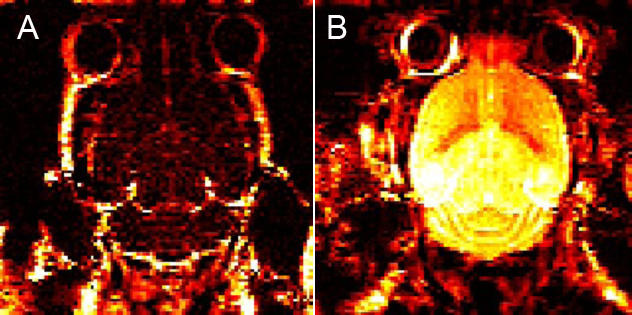The Blood-Brain Barrier (BBB)
The BBB effectively prevents more than 98% of all drugs to penetrate from the brain vasculature and into the brain tumours, thus todays treatment strategy for brain metastases are ineffective.
Main content
We investigated the ability of a synthetic peptide to permeabilize the BBB for improved treatment with targeted therapies preclinically. Dynamic contrast enhanced MRI (DCE-MRI) was carried out on nod/scid mice to study the therapeutic window of peptide-mediated BBB permeabilization. Further, both in vivo and in vitro assays were used to determine peptide toxicity and to obtain mechanistic insight into its action on the BBB. The therapeutic impact of the peptide on metastases was evaluated combined with the mitogen-activated protein kinase pathway inhibitor dabrafenib, targeting BRAF mutated melanoma cells, which is otherwise known not to cross the intact BBB.
Our results from the DCE-MRI experiments showed effective peptide-mediated BBB permeabilization lasting for up to 1 hour. Mechanistic studies showed a dose-dependent effect of the peptide caused by induction of endocytosis. Combined treatment with the peptide and dabrafenib reduced the brain metastatic burden in mice and increased animal survival, and PET/CT showed that the peptide also facilitated the delivery of compounds with molecular weights as large as 150 kDa into the brain.
To conclude, we demonstrate a transient permeabilization of the BBB, caused by the peptide, that facilitates enhanced drug delivery into the brain. This improves the efficacy of drugs that otherwise do not cross the intact BBB.
For more information, you can read the publication here.
